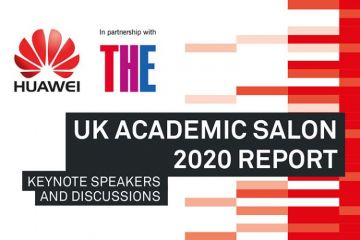Covid’s global onset early this year caused a dramatic change in the “patterns of attacks” on academic freedom, according to a report.
“The crisis revealed new vulnerabilities within higher education”, such as an increase in online disruptions, says the annual Free to Think report published by Scholars at Risk (SAR). Universities are also facing unprecedented financial challenges at the same time as some governments are attacking scholars looking critically at the handling of Covid.
SAR, an international network headquartered at New York University, calls these forces “new versions of old pressures”.
For example, while harassment of academics has long existed, a new phenomenon known as “Zoombombing” emerged soon after campuses closed. SAR describes the practice as “outside actors entering an online meeting, class, ceremony, or other gathering to interject disruptive, harassing, offensive, or intimidating content, comments, or images”.
The report, which serves as a yearly account of academic freedom threats, documents 341 attacks on academics or students in 58 countries and regions from September 2019 to August 2020. This was a slight increase from the previous year, when there were 324 reported attacks in 56 countries and regions.
The authors stress that this figure “reflects only a sample” of attacks, although the general trend was that they “continued at a staggering rate…despite months of campus closures around the world and a reduction in international scholarly travel”.
The report highlights areas where academic freedom concerns were pressing: mainland China and Hong Kong, India, Turkey, Yemen and Venezuela.
Jesse Levine, SAR’s senior programme officer for advocacy, told Times Higher Education that academic freedom issues may have been overlooked amid rapid changes in teaching and learning. The online tools teachers and administrators adopted in a hurry “did not have the types of built-in protections we would hope for in an ideal world”.
“Protecting digital privacy, ensuring that students’ access wasn’t compromised, and protecting against the use of online platforms as vectors for racial, sexual, religious and other forms of harassment were just a few of the challenges that professors and institutions were not prepared to address,” he said.
Mr Levine also said that “austerity and political expediency can absolutely shift national focus away from academic freedom and other human rights priorities”. In this way, the Covid crisis exacerbated pre-existing pressures.
“In recent years, higher education and human rights experts have increasingly criticised countries and universities that they believe have become overly reliant on funding streams from countries that exert considerable political influence, like China or some of the Gulf states,” he said. “The pressures and challenges that cash-strapped universities face are real, and they are likely to grow through the Covid era.”
For example, online conferences that “might displease patron governments and lead to a withdrawal or denial of funding will be just one test”. Even seemingly apolitical budget cuts to fields such as journalism, law and foreign relations could “negatively impact universities' abilities to engage with the larger societies in which they operate”.
There will also be a loss in the exchange of ideas generated through physical exchanges and events, and just in normal day-to-day conversations between students and professors on campus.
As Covid physically separates students and teachers, “we’ve seen instances of instructors engaging in self-censorship, cutting online course materials and altering lectures in order to protect students who are studying remotely from charges in their home countries”, Mr Levine said.
SAR urges policymakers to help “minimise the impact on the international exchange of ideas, and on universities and other institutions that are crucial bulwarks of a free society”.
“In the meantime, we’ll continue stressing to university leaders everywhere the importance of upholding academic freedom and transparency in all their international relationships,” Mr Levine said.
Register to continue
Why register?
- Registration is free and only takes a moment
- Once registered, you can read 3 articles a month
- Sign up for our newsletter
Subscribe
Or subscribe for unlimited access to:
- Unlimited access to news, views, insights & reviews
- Digital editions
- Digital access to THE’s university and college rankings analysis
Already registered or a current subscriber?










